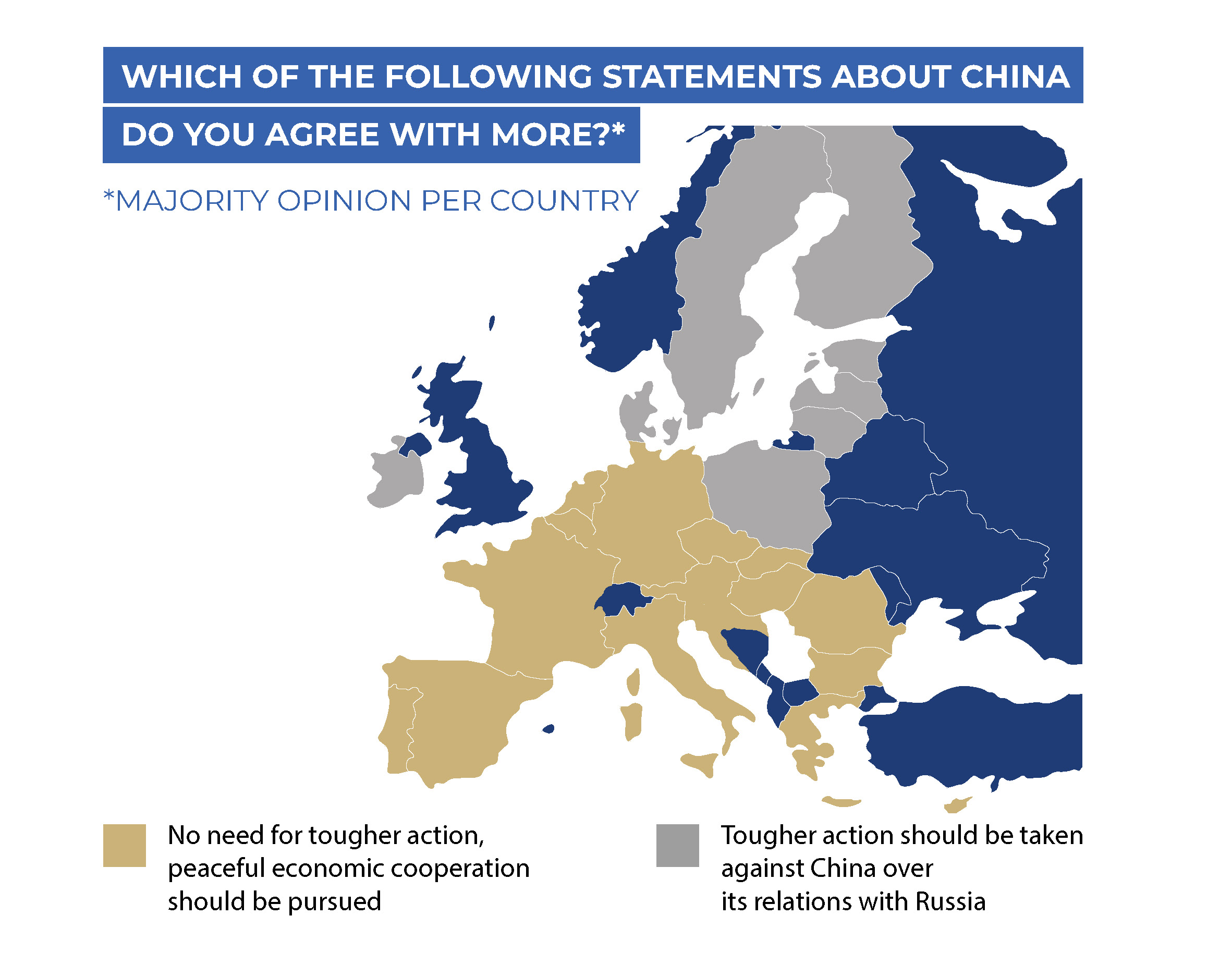
As it is clear by now, the economic sanctions introduced by the EU did not bring the promised success. The Russian economy tanked, increased its income on energy exports due to rising market prices in the EU and managed to capitalize on its experiences in fighting off some of the negative impacts of sanctions from the restrictions introduced back in 2014 and after. It also successfully rerouted some of its supplies to reach desired markets through countries like China. This further deteriorated political ties between the EU and China to the point that the Union revealed it is ready to put economic pressure on China to ultimately make ends meet with Russian sanctions. This was matched with Brussels’ and Washington’s idea of decoupling our economies from China’s. As this proved not possible, Ursula von der Leyen set her new agenda in her latest State of the Union address on 13th September.
This time, the war cry was “diplomatic and economic derisking”, which included a critical move by the European Commission: the “ex officio” launch of anti-subsidy investigations into EU imports of battery electric vehicles (BEVs) from China, which could potentially lead to the levying of countervailing tariffs on the EU’s BEV imports to offset Chinese state subsidies. This, however, would cause critical damage to economic relations both on the EU and member state levels. This, coupled with another attack on China – encouraged by lobby efforts from Washington – the anti-subsidy investigations into steelmakers (and a potential move under consideration by the Commission to include inquiries into the wind turbine sector) could destruct political ties with China and would eventually cause critical damage to the European markets as China is one of EU’s most substantial import partners and the third biggest export market. A blow this big could easily lead to higher consumer prices and tariffs, which will eventually be paid by European citizens, imposing on them heavy financial burdens in times of recession, economic setbacks, and stagflation.

Given that an escalating trade conflict could have serious consequences for the European economy, Századvég has examined whether European citizens support the measures Brussels is taking against China. According to its survey, only 8 out of 27 states want tougher policies against China. The rest – 19 states – don’t agree with the desired hard measures, which means that the majority of Europeans are in favour of peaceful economic cooperation.
Within the group of anti-sanction member states, Hungary proved to be the most pro-peaceful economic trade state. Almost four-fifths (79 per cent) of the Hungarian population oppose restrictions on trade with China, while support for tougher action is only 14 per cent. In comparison, in Lithuania (which was the most supportive country of tougher policies on China), 55 per cent of the population was pro-sanction, while 34 per cent still opposed it.
Overall, it can be concluded that EU member states opposing tougher policies on China for its relations with Russia are in the absolute majority, and most Europeans prefer to have a mutually beneficial and peaceful economic relationship which is built on connectivity, not division. This is partially explained by the fact that Europeans think the greatest loser of economic sanctions against Russia was the EU itself. Furthermore, it is important to note that the question of sanctioning China tends to divide people more in countries where the majority supports tougher action. Findings by Századvég reflect the European citizens’ view on sanctioning China, which should be considered when EU representatives decide on such politically and economically salient questions.
Olivér Hortay is Business Unit Head at Századvég Konjunktúrakutató Zrt.
Barna Péterfi is a consultant at Századvég Konjunktúrakutató Zrt.